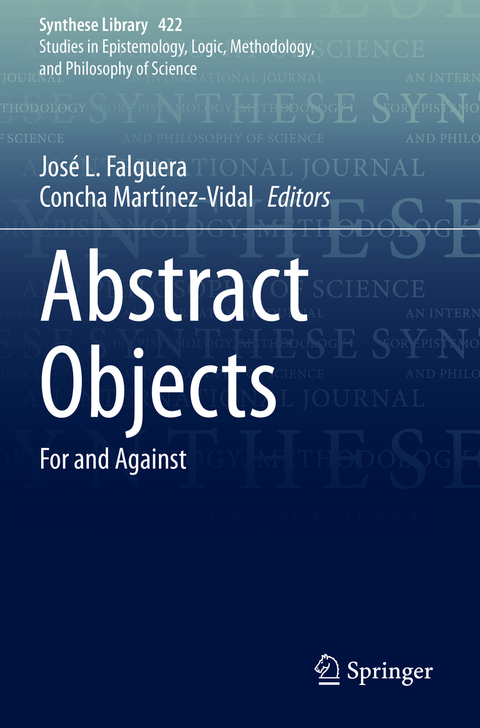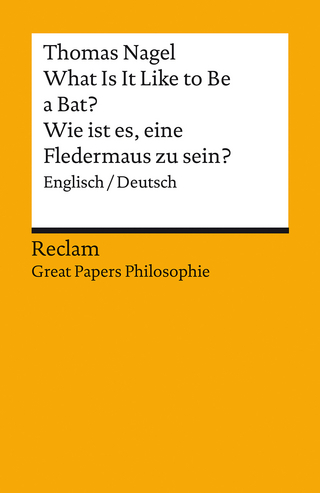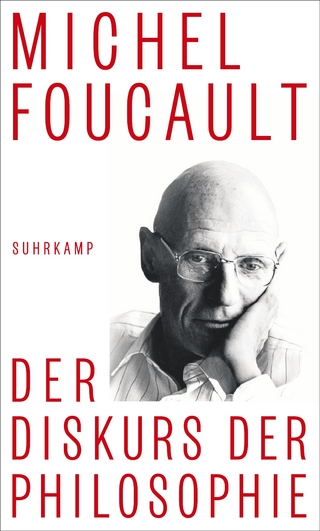
Abstract Objects
Springer International Publishing (Verlag)
978-3-030-38244-5 (ISBN)
Given the ubiquitous use of expressions that purportedly refer to abstract objects, we think that it is relevant to attend to the controversy between those who want to advocate the existence of abstract objects and those who stand against them. Contributions to this volume depict positions and debates that directly or indirectly involve taking one position or other about abstract objects of different kinds and categories. The volume provides a variety ofsamples of how positions for or against abstract objects can be used in different areas of philosophy in relation to different matters.
lt;p>José L. Falguera was born in Vigo (Spain). He received a Ph.D. in Philosophy in 1992 from the University of Santiago de Compostela (Spain) (with a thesis entitled: Problemas ontosemánticos de los términos teóricos conforme a la concepción estructuralista (Ontosemantic problems of scientific terms from the point of view of the structuralist approach), supervised by Prof. Dr. C. Ulises Moulines.
He is currently Associate Professor of Logic and Philosophy of Science at the University of Santiago de Compostela (Spain). His main research interests have to do with the ontosemantics of scientific expressions, scientific models, epistemic problems of natural science, philosophy of perception, and abstract objects.
He is author (with C. Martínez-Vidal) of the book entitled: Lógica Clásica de Primer Orden, Trotta, Madrid, 1999. He has also published several articles in different journals and compilations. Some of them are: (with Donato-Rodríguez, X.) "On Fictions, Theoretical Entities, and Ideal Objects: Applying Zalta's Abstract Objects Theory to Scientific Theories", in: Borbone, G. & Brzechczyn, K. (eds.) Idealization XIV: Models in Science, Edition: (Poznan Studies in the Philosophy of the Sciences and the Humanities, 108), pp., 14-42."Incommensurability, Comparability, and Non-reductive Ontological Relations", in: Journal for General Philosophy of Science (2015), DOI: 10.1007/s10838-014-9275-3; (with Peleteiro, S.) "Experiencia perceptual y sustento epistémico", en: Revista de Filosofía (2014), 39(2): 7-32, and "The approximate representational character of Perceptual Experiences"; "Comparación epistémica de teorías inconmensurables, sin fundamentismo", in: Lorenzano, P. & Nudler, O. (eds.) (2012) El camino desde Kuhn: La inconmensurabilidad hoy. Madrid: Biblioteca Nueva, pp. 119 170; "De lo que tratan en común teorías inconmensurables", in: Peris-Viñe, L. M. (ed.) (2012) Filosofía de la Ciencia en Iberoamérica: Metateoría Estructural. Madrid: Técnos, pp. 448-468; "Representaciones no-conceptuales y lo dado: revisando a Fodor", in: Miguens, S., Pinto, J. A. & Teles, M. (eds.) (2011) Aspectos do Juízo Aspects of Judgement. Porto: Porto, pp. 107-134; "Consideraciones de índole ontoepistemosemántica", Metatheoria (2011), 1, pp. 39 63; "Foundherentist Philosophy of Science", in: Ernst, G. Nieberhall, K. G. (eds.) (2006) Philosophie der Wissenschaft -Wissenschaft der Philosophie. Festschrift für C. Ulises Moulines zum 60, Mentis: Geburstag-Paderborn, pp. 67-86; "Las revoluciones científicas y el problema de la inconmensurabilidad", in: González, W. (ed.) (2004) Análisis de Thomas Kuhn. Madrid: Trotta, pp. 177-223; "Ontosemantic divergence and comparability of theories", Logica Trianguli, 3: 33-53; "Representational semantics for scientific theories", in: Martínez-Vidal, Rivas, U. & Villegas-Forero, L. (eds.) (1998) Truth in Perspective: Recent Issues in Logic, Representation and Ontology. Brookfield: Aldershot, pp. 379-397; "A basis for a formal semantics of linguistic formulations of science", in: Ibarra, A. Mormann, T. (eds.) (1997) Representations of scientific rationality. Contemporary formal philosophy of science in Spain, Amsterdam/Atlanta: Rodopi, pp. 255-276. He has edited compilations and monographs with several colleagues: Díez, J.; Lorenzano, P.; Martínez-Vidal, C., Rivas, U., and Sagüillo, J. M.
He has also organized several conferences and workshops in cooperation with other members of the EPISTEME research group, Univ. de Santiago de Compostela. Besides, he was Chair of the Department of Logic and Moral Philosophy between 2013-february and 2016-june and he is currently the Chair of the Department of Philosophy and Anthropology since 2016-october of that University.
His research interests are related to: general philosophy of science, ontosemantics, epistemology, theoretical terms, scientific models, scientific laws, abstract artifacts, formal and informal logic.
<
Preface (José L. Falguera and Concha Martinez-Vidal).- 1. Introduction: Recent disputes on the existence on abstract objects: an overview (Matteo Plebani).- Part I. Enhanced Indispensability and Type Theories. 2. Purely Physical Explananda: Bistability in Perception (Sam Baron).- 3. Description, Explanation and Ontological Commitment (Concha Martinez-Vidal and Navia Rivas-de-Castro).- 4. Typed Object Theory (Edward Zalta).- Part II. Fictionalism or Realism in Philosophy of Mathematics. 5. Contingent Abstract Objects (Otávio Bueno).- 6. Is There a Fact of the Matter about the Existence of Abstract Objects? (Mary Leng).- Part III. Fictionalism or Realism in Philosophy of Empirical Sciences. 7. An ensemble-plus-standing-for account of scientific representation: no need for (unnecessary) abstract objects (José A. Diez).- 8. The Nature of Scientific Models: Abstract Artifacts that Determine Fictional Systems (Xavier de Donato-Rodriguez and José L. Falguera).- 9. The Scope and Power of Abstraction in Science (Stathis Psillos).- 10. Models and Denotation (Fiora Salis, Roman Frigg, and James Nguyen).- Part IV. Fictionalism or Realism in Philosophy of Language. 11. Fictional Co-identification: The Explanatory Lightweight of Realism (Manuel Garcia-Carpintero).- 12. What is the difference between Hamlet and me? Fiction, metaphysics and the nature of our moral thinking (Sofía Miguens).- 13. Abstract Objects and the Core-Periphery Distinction in the Ontological and Conceptual Domain of Natural Language (Friederike Moltmann).- 14. How to Vindicate (Fictional) Creationism (Alberto Voltolini).- Part V. Fictionalism or Realism in Moral Philosophy and Philosophy of Arts. 15. Moral Folkism and the Deflation of (Lots of) Normative and Metaethics (Mark Balaguer).- 16. Methodology in the ontology of artworks: exploring hermeneutic fictionalism (Elisa Caldarolo).- 17. A Realist-Friendly Argument for Moral Fictionalism: Perhaps You'd Better Not Believe It (Christopher Jay).
| Erscheinungsdatum | 11.05.2021 |
|---|---|
| Reihe/Serie | Synthese Library |
| Zusatzinfo | XXII, 356 p. 11 illus. |
| Verlagsort | Cham |
| Sprache | englisch |
| Maße | 155 x 235 mm |
| Gewicht | 581 g |
| Themenwelt | Geisteswissenschaften ► Philosophie ► Philosophie der Neuzeit |
| Schlagworte | abstract objects existence • Art Ontology • Cartwright scientific models • Classical genetics metascience • Deflationism and abstract objects • Fictionalims realism • Fictionalism and abstract objects • Indispensability Argument • Irrealism pretense and fiction • Irrealist credentials • Mathematical explanation abstract objects • Models as fictions abstract objects • Moderate Creationism • Ontological commitments • Philosophy of Hamlet • Realism and fictionalism about moral discourse • Realism and fictionalism about moral discourse • Scientific models and artifacts • Scientific representation abstract objects • Semantics of natural language • Tractarian ideas |
| ISBN-10 | 3-030-38244-3 / 3030382443 |
| ISBN-13 | 978-3-030-38244-5 / 9783030382445 |
| Zustand | Neuware |
| Informationen gemäß Produktsicherheitsverordnung (GPSR) | |
| Haben Sie eine Frage zum Produkt? |
aus dem Bereich


